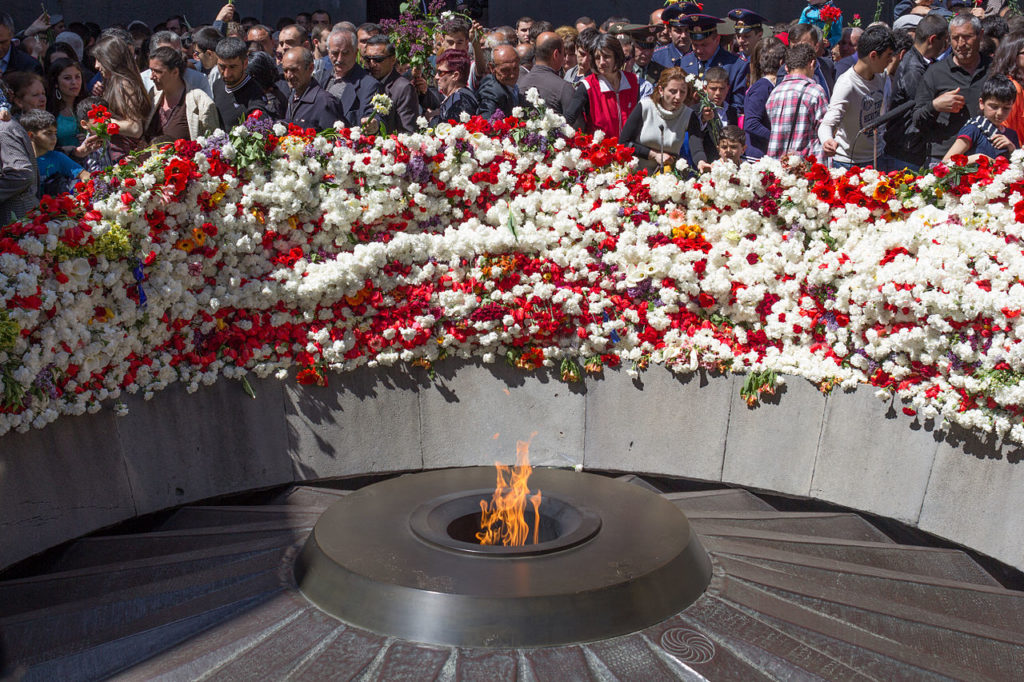Letter to Editor: When a Critique of Racist Discourse Veers off Course
September 20, 2017
Recently I read an op-ed by Uzay Bulut in The Armenian Weekly titled “Turkey’s Genocide Denial: Four Narratives.” The article starts with an informative account of four different trends of genocide denialism in Turkey. It critiques the racist discourse that exists in Turkey primarily against Armenians, but also Greeks and Jews. At one point, however, the article veers off in another direction—when the author asks, “why is denial of genocide still so popular in Turkey?”
Here, she attempts to collapse 14 centuries of Islamic history into a history of Muslims oppressing non-Muslims. She essentializes and generalizes Muslim hatred toward non-Muslims. Of course, it is easy to make an argument about Islam as a violent religion when one only points out the violent moments of its history, and disregards violence perpetrated under the name of other religions and within other religious societies. This is how typical Islamophobic arguments are advanced. In such cases one easily points out how Islam over the centuries has spread its force “by the sword” but fails to consider how Christian colonizing powers took over and Christianized at least two continents: North and South America. Do we, as a result, call Christianity a violent religion? And do we explain the genocide of Native Americans and the violent settlement of Christian Europeans on these two continents through the lens of Christianity?
To make her argument convincing, she quotes three scholars, out of whom only Dr. Yektan Türkyılmaz is an established scholar in the field of Armenian Genocide Studies. Yet, Bulut misuses even his work. She cites from a recent article of Dr. Türkyılmaz, but cherry-picks quotes from his piece. While Türkyılmaz’s article deals largely with the consequences of the Armenian Genocide on Turkey, Bulut integrates his quotes with the intent to further her argument on Islam’s primary role in both the act of committing the genocide and its denial. Bulut quotes Türkyılmaz as saying, “It is without doubt that the annihilationist consensus between the central government in Istanbul, the military commanders, governors, low-level and middle-level officials, many Kurdish tribes, and Circassian militia etc. was built on Islamic identity.” She, however, leaves out the crucial next sentence which reads, “Don’t perceive that I am establishing a causal relationship between identity-ideology [i.e., Islam] and violence.”
Bulut ignores the expanding literature on the Armenian Genocide in the past two decades that has moved away from such essentialist arguments and provided other more complex explanations for the occurrence of the Armenian Genocide, including modernism and positivism. Instead she moves to amateur writers such as Andrew G. Bostom—a right-wing anti-Muslim author—whom she wrongfully characterizes as a scholar, a title that even Mr. Bostom does not use to identify himself on his website. Bostom’s writing suggests that Muslims are incapable of starting a self-critical conversation on their own and that U.S. politicians should instead intervene. In other words, it subscribes to the Western colonialist ideology that only the white man can save the “Orientals,” in this case Muslims.
It is disturbing that such Islamophobic and Orientalist ideologies are propagated through the guise of the recognition of the Armenian Genocide, which for me has first and foremost been a human rights matter. The very belief that all Jews were inferior to the Aryan race, that Native Americans were savages, that all Armenians were/are traitors, etc. has facilitated genocide. Therefore, to understand genocide and recognize its human cost and immorality should translate into the conviction that no religious, racial, or ethnic group should be painted in one color. This includes to dismiss the belief that in their essence Muslims are violent. If we cannot accept this fundamental principle, we miss completely the humanistic aspect of the recognition of the Armenian Genocide. Therefore, to use the Armenian Genocide—to provide the very type of vitriol against another group of people—subdues and dishonors the humanistic goals in advocating for its recognition, as the article by Bulut claimed to do.
It is even more disconcerting that this is happening at a time when Islamophobia and White Supremacy are on the rise, facilitated by the Trump administration. Islamophobia, and White Supremacist ideology is unacceptable for the very simple reason that they are racist. Thus, I would like to call on the editors of the Armenian Weekly to be more diligent with fact-checking and source-checking, as well as to be more aware and responsible for the type of ideologies that are being advanced in the publication.
Dzovinar Derderian is a PhD Candidate in the Near Eastern Studies Department at the University of Michigan, Ann Arbor.
Source: Armenian Weekly
Link: Letter to Editor: When a Critique of Racist Discourse Veers off Course
